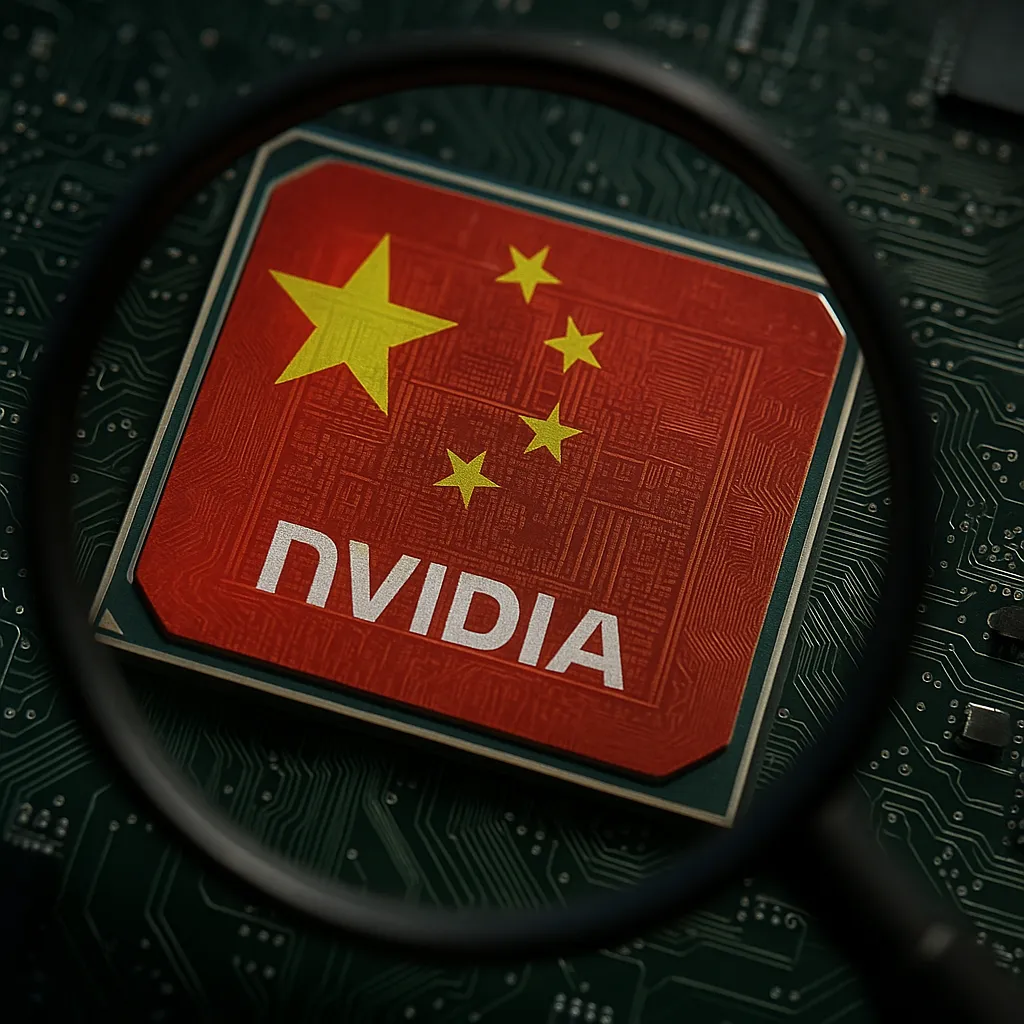China Extends Antitrust Probe into Nvidia, Shares Slip

Lead China’s market regulator announced Monday it will deepen its investigation into Nvidia’s 2020 Mellanox acquisition for potential anti-monopoly breaches, sending the chipmaker’s shares down about 2.5% in premarket trading.
Nut Graf The move underscores rising regulatory and geopolitical pressures on Nvidia as U.S. and Chinese officials meet in Madrid for high-stakes trade talks, spotlighting the tensions shaping global AI and semiconductor markets.
Key Developments
- Probe Extension: State Administration for Market Regulation (SAMR) said preliminary findings show Nvidia violated China’s anti-monopoly law in its Mellanox deal and pledged “further investigation”.
- Market Reaction: Nvidia stock fell approximately 2.5% to $173.36 in premarket trading, reflecting investor anxiety over Chinese regulatory risk.
- Trade Talks Context: Announcement coincides with the fourth round of U.S.-China trade negotiations in Madrid, aimed at easing tariffs and technology restrictions.
Regulator’s Statement and Scope
SAMR’s concise Monday statement did not detail specific violations but focused on Nvidia’s $7 billion 2020 purchase of Israeli networking firm Mellanox Technologies. Authorities claim Nvidia failed to meet conditions attached to its conditional approval, though the exact terms remain undisclosed.
Investor Sentiment and Strategic Implications
The antitrust probe adds uncertainty to Nvidia’s growth strategy in China, a key market that accounted for an estimated 13% of its revenue last year. Despite the setback, analysts maintain a generally bullish outlook, with an average price target above $200 if Nvidia navigates regulatory hurdles successfully.
Broader U.S.-China Tech Tensions
The SAMR action follows earlier Chinese measures, including an antidumping investigation into U.S. analog IC imports and an antidiscrimination probe into American chip industry restrictions. In parallel, Washington has placed Chinese firms on export-control lists and required export licenses for Nvidia’s high-end H20 AI chips.
What Comes Next
SAMR’s extension of its probe could lead to fines of 1%-10% of Nvidia’s annual revenue or restrictions on chip sales in China. As trade talks progress this week, both sides will weigh technology access and market fairness against national security and economic leverage. Continuous monitoring of regulator updates and diplomatic developments will be crucial for assessing the long-term impact on Nvidia and the global AI supply chain.
Categories
Autos and vehicles Beauty and fashion Business and finance Climate Entertainment Food and drink Games Health Hobbies and leisure Jobs and education Law and government Other Politics Science Shopping Sports Technology Travel and transportationRecent Posts
Tags
Archives
08/19/2025 (3) 08/20/2025 (40) 08/21/2025 (27) 08/22/2025 (22) 08/23/2025 (4) 08/24/2025 (21) 08/25/2025 (30) 08/26/2025 (24) 08/27/2025 (29) 08/28/2025 (16) 08/29/2025 (9) 08/30/2025 (13) 08/31/2025 (17) 09/01/2025 (167) 09/02/2025 (124) 09/03/2025 (149) 09/04/2025 (112) 09/05/2025 (72) 09/06/2025 (169) 09/07/2025 (162) 09/08/2025 (150) 09/09/2025 (176) 09/10/2025 (194) 09/11/2025 (194) 09/12/2025 (186) 09/13/2025 (207) 09/14/2025 (159) 09/15/2025 (175) 09/16/2025 (198) 09/17/2025 (196) 09/18/2025 (196) 09/19/2025 (207) 09/20/2025 (129) 09/21/2025 (4)